MY FIRST NOTIFICATION
My third or fourth day in Norfolk, I was notified of the death of a 19 year old Marine. This notification came by telephone from Headquarters Marine Corps. The information detailed:
Name, rank, and serial number.
Name, address, and phone number of next of kin.
Date of and limited details about the Marine�s death.
Approximate date the body would arrive at the Norfolk Naval Air Station.
strong recommendation on whether the casket should be opened or closed.
The boy�s family lived over the border in North Carolina, about 60 miles away. I drove there in a Marine Corps staff car. Crossing the state line into North Carolina, I stopped at a small country store / service station / Post Office.
I went in to ask directions.
Three people were in the store. A man and woman approached the small Post Office window. The man held a package. The Storeowner walked up and addressed them by name, �Hello John. Good morning Mrs. Cooper.�
I was stunned. My casualty�s next-of-kin�s name was John Cooper!
I hesitated, then stepped forward and said, �I beg your pardon. Are you Mr. and Mrs. John Cooper of (address)?
The father looked at me�I was in uniform�and then, shaking, bent at the waist, and vomited. His wife looked horrified at him and then at me. Understanding came into her eyes and she collapsed in slow motion. I think I caught her before she hit the floor.
The owner took a bottle of whiskey out of a drawer and handed it to Mr. Cooper who drank. I answered their questions for a few minutes. Then I drove them home in my staff car. The storeowner locked the store and followed in their truck. We stayed an hour or so until the family began arriving.
I returned the storeowner to his business. He thanked me and said, �Mister, I wouldn�t have your job for a million dollars.� I shook his hand and said; �Neither would I.�
I vaguely remember the drive back to Norfolk. Violating about five Marine Corps regulations, I drove the staff car straight to my house. I sat with my family while they ate dinner, went into the den, closed the door, and sat there
all night, alone.
My Marines steered clear of me for days. I had made my first death notification.
THE FUNERALS
Weeks passed with more notifications and more funerals. I borrowed Marines from the local Marine Corps Reserve and taught them to conduct a military funeral: how to carry a casket, how to fire the volleys and how to fold the flag.
When I presented the flag to the mother, wife, or father, I always said, �All Marines share in your grief.� I had been instructed to say, �On behalf of a grateful nation.� I didn�t think the nation was grateful, so I didn�t say that.
Sometimes, my emotions got the best of me and I couldn�t speak. When that happened, I just handed them the flag and touched a shoulder. They would look at me and nod. Once a mother said to me, �I�m so sorry you have this terrible job.� My eyes filled with tears and I leaned over and kissed her.
ANOTHER NOTIFICATION
Six weeks after my first notification, I had another. This was a young PFC. I drove to his mother�s house. As always, I was in uniform and driving a Marine Corps staff car. I parked in front of the house, took a deep breath, and walked towards the house. Suddenly the door flew open, a middle-aged woman rushed out. She looked at me and ran across the yard, screaming
I hesitated. Neighbors came out. I ran to her, grabbed her, and whispered stupid things to reassure her. She collapsed. I picked her up and carried her into the house. Eight or nine neighbors followed. Ten or fifteen later, the father
came in followed by ambulance personnel. I have no recollection of leaving.
The funeral took place about two weeks later. We went through the drill. The mother never looked at me. The father looked at me once and shook his head sadly.
ANOTHER NOTIFICATION
One morning, as I walked in the office, the phone was ringing. Sergeant Jolly held the phone up and said, �You�ve got another one, Colonel.� I nodded, walked into my office, picked up the phone, took notes, thanked the officer making the call I have no idea why and hung up. Jolly, who had listened, came in with a special Telephone Directory that translates telephone numbers into the person�s address and place of employment.
The father of this casualty was a Longshoreman. He lived a mile from my office. I called the Longshoreman�s Union Office and asked for the Business Manager. He answered the phone, I told him who I was, and asked for the father�s schedule.
The Business Manager asked, �Is it his son?� I said nothing. After a moment, he said, in a low voice, �Tom is at home today.� I said, �Don�t call him. I�ll take care of that.� The Business Manager said, �Aye, Aye Sir,� and then explained, "Tom and I were Marines in WWII.�
I got in my staff car and drove to the house. I was in uniform. I knocked and a woman in her early forties answered the door. I saw instantly that she was clueless. I asked, �Is Mr. Smith home?� She smiled pleasantly and responded, �Yes, but he�s eating breakfast now. Can you come back later?� I said, �I�m sorry. It�s important, I need to see him now.�
She nodded, stepped back into the beach house and said, �Tom, it�s for you.�
A moment later, a ruddy man in his late forties, appeared at the door. He looked at me, turned absolutely pale, steadied himself, and said, �Jesus Christ man, he�s only been there three weeks!�
Subscribe to:
Post Comments (Atom)
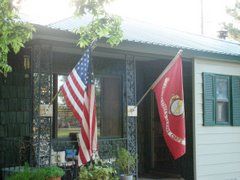
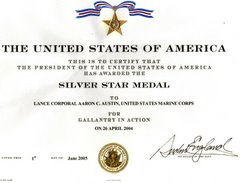
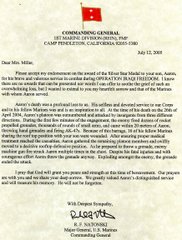
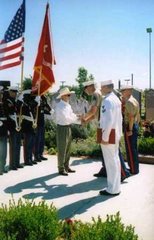


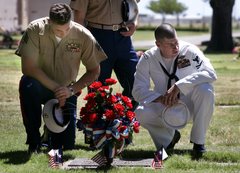

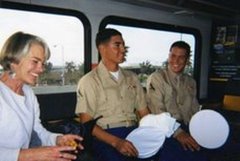

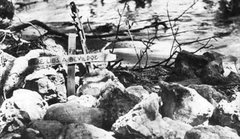


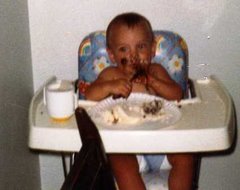

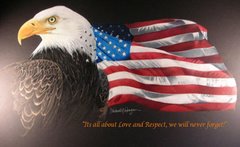
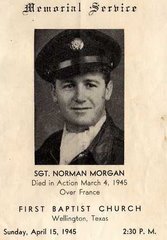
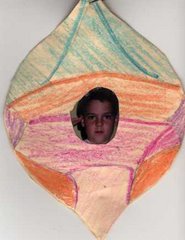

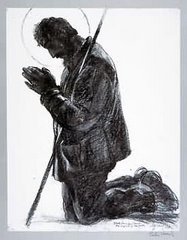
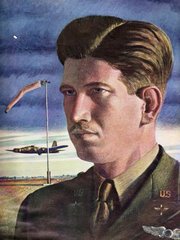
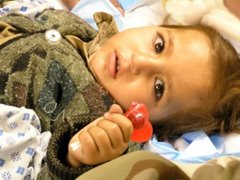
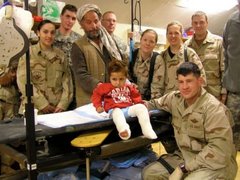
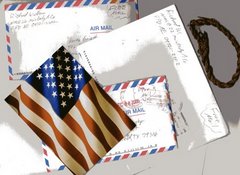

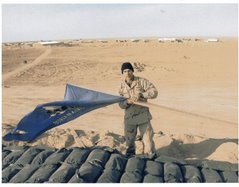


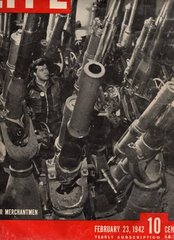
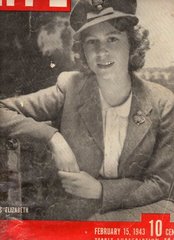

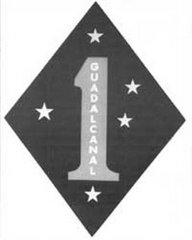
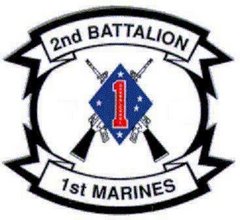


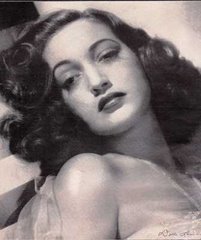

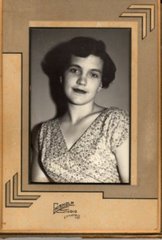

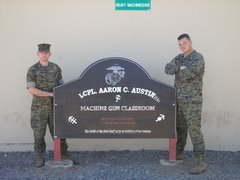

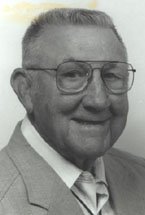

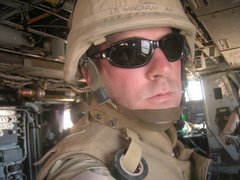
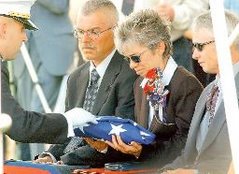


2 comments:
This was the toughest one for me to read!
(Tears streaming down my face)
I wonder if after so many notifications, they just become numb to the emotion of it or if it will always be as difficult as the first time?
I don't imagine they become numb, but I have wondered what type training they receive as far as "distancing" themselves from the family once the job is sort of over. I know I felt as if Captain Teague was "mine." Even though he had other casualties to deal with as well as a regular job at the Reserve Unit in Lubbock. I've even thought about emailing him with "research type questions", but I don't know that that's fair to him, and like so much, there's probably not a lot he can tell me due to the sensitivity of it all. But one of my questions would be: "Do they give classes or training in how not to become so emotionally involved. To me, he said once that Marines look at the death different than most. They truly believe the missing Marine is still with them. Like at the Marine Ball, and even in the Marine Detachment in Hobbs, there is a place set for those who have paid what they all would pay. Those I've talked to, show this same attitude, but then again, I don't know that those I've talked to (besides Aaron's friends) have actually lost someone in a firefight they were in.
I'm anxious to see where this series leads. I have another very sad story that I know about but the others will be new to me.
Thanks, Chantal. I was a little hesitant about this series. I hate to always be the Death blogger, but we are in war for our lives. Let the grins come when they can or may, but for a big big part, there is much death (and not just physical) to discuss. And too, the hope. But the hard stuff cannot be ignored.
On this blog, I don't want to ignore any of it. The family life and times and movies and books and headlines are all a part of history that I want to permanently record here, and as I've said, I'd be happy for Gunz Up to continue beyond my life or capabilities.
It is a Memorium and a Testament. We'll continue to do it all here. And the more, the better.
Post a Comment